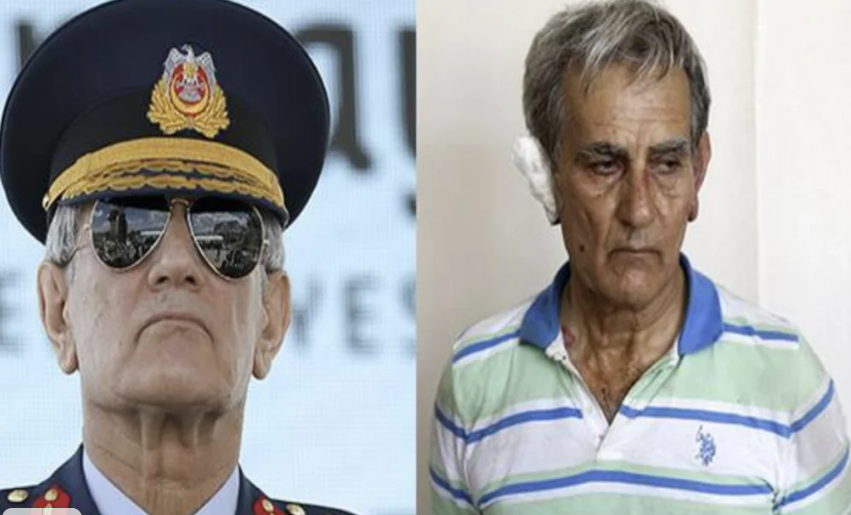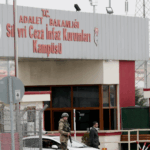Retired Air Force General Akın Öztürk, once one of the most senior figures in the Turkish Armed Forces, has delivered an explosive and defiant defense in his retrial over the 2016 coup attempt. Speaking for two days before the Ankara 17th High Criminal Court, Öztürk declared his complete innocence and said he had been made a scapegoat by Turkey’s top military commanders in a calculated effort to shield themselves and align with the ruling government.
Now in his ninth year of incarceration and serving multiple aggravated life sentences, the former commander directly implicated former Chief of General Staff Hulusi Akar, current Defense Minister Yaşar Güler, and former Air Force Commander Abidin Ünal, accusing them of betraying him to save themselves. His defense not only challenged the official narrative of the failed coup but also resurfaced one of Turkey’s most controversial military operations—the 2011 Uludere airstrike—suggesting a deeper pattern of concealment, manipulation, and abandonment within the Turkish high command.
A Broken Chain of Command — or a Constructed Narrative?
Öztürk began his testimony by sharply criticizing the inconsistency and political motivations behind his prosecution.
“On July 15, 2016, I followed the orders of Hulusi Akar, nothing more,” he said.
“But somehow, one of us became the hero of that night, and the other became its number one suspect. I was made the scapegoat—deliberately, politically, and systematically.”
He argued that he had been falsely inserted into the coup narrative despite not holding any operational authority during the events of July 15.
“Abidin, Yaşar, and Hulusi Pasha handed everything to Akın Pasha—who had no command, no troops, no orders to give. That’s not justice. That’s politics.”
Uludere: The Forgotten Massacre That Returned to Court
In a particularly striking moment, Öztürk brought up the Uludere bombing—a 2011 airstrike in which 34 Kurdish villagers, mostly teenagers, were killed by Turkish F-16s after being mistaken for PKK militants while smuggling goods along the Iraqi border. The government initially described the attack as a tragic “mistake of identification,” but no senior military or political figure has ever been held accountable.
The case, which provoked national and international outrage, has remained unresolved, with no commanding officers prosecuted despite evidence of misidentification and miscommunication. Öztürk had long been rumored to be linked to the operation, but he denied any involvement and dropped a quiet bombshell:
“I had no responsibility for that mission. I was in İzmir, leading the Air Training Command. I had no armed units. But I know who gave the order. And when the time comes, I will name them. I also know who within the Air Force objected to the strike.”
His statement reignited suspicions that the real chain of command behind Uludere has been deliberately obscured. He implied that, just like the coup narrative, the truth had been buried to protect senior figures—both in uniform and in politics.
Öztürk, who has been in prison since 2016 and is serving multiple life sentences, used the Uludere incident to draw parallels between that case and what he says happened to him after the failed coup: senior officers, he argued, routinely protect themselves by throwing subordinates under the bus.
“Everything Was Fabricated to Fit a Pre-Decided Story”
Öztürk challenged key prosecution claims, especially the testimony of a secret witness who had accused him of meeting with fugitive cleric Adil Öksüz—allegedly the civilian mastermind of the coup—in Ankara in early July 2016.
“That’s a lie,” Öztürk said. “I was at a military camp in İzmir during those dates, with several retired generals and even Abidin Ünal himself.”
He recounted how Ünal hosted dinners at the camp and was fully aware of Öztürk’s whereabouts, yet later chose to conceal this in his own testimony.
“Why did he lie? We were comrades in arms. Why did he betray me? Has fear so completely overtaken honor in the Turkish military?”
Öztürk claimed the secret witness later retracted their testimony, stating they had “confused” him with someone else. But by then, he said, the damage had been done—his name was already circulating in state media as the coup’s alleged military ringleader.
“Even before I reached Akıncı Base, Anadolu Agency had begun its campaign. The character assassination was already in motion. It was a setup from the beginning.”
Inside Akıncı Base: “I Tried to De-Escalate, Not Command”
One of the most consequential portions of Öztürk’s testimony centered on his role at Akıncı Air Base on the night of July 15. He said that Abidin Ünal personally called him and told him to go to the base to investigate unauthorized flights.
“He didn’t say anything about a coup. Just that flights were taking off without authorization.”
Upon arrival, he found Hulusi Akar seated alongside officers later accused of organizing the putsch.
“I asked what was happening. Akar said: ‘They’ve done this. Talk to them. Convince them to stop.’ That’s when I first heard the word ‘coup’—from him.”
Öztürk recounted being sent from room to room by Akar to persuade officers to abandon the operation.
“They say I was mediating. No. I was trying to stop something that was already happening. If I were the mastermind, would I walk into a trap like that, wearing civilian clothes?”
He also denied claims that Akar had been forcibly detained.
“I saw no bruises. No wounds. Nothing that suggested he had been assaulted or restrained. He gave orders, moved freely. The story about him being taken hostage—it’s not true.”
Allegations of Torture, Betrayal, and Institutional Cowardice
Breaking his nine-year silence on his detention, Öztürk described the torture and abuse he endured in custody:
“They poured acid under my nails. My ear was torn, my teeth were broken. I was shackled and beaten. They threatened to kill me and unleashed young soldiers on me. I waited, hoping Akar or Ünal would appear and say, ‘He was with us.’ But they never did.”
Despite visual evidence, he said, officials denied any mistreatment. Then–Justice Minister Bekir Bozdağ claimed his injuries came from a fall under helicopter fire. Öztürk submitted photos taken at home before his arrest showing no visible injuries.
He also accused fellow generals of cowardice, saying they refused to testify, fearing political consequences.
“These are commanders of a 600,000-strong army. Yet they’re too afraid to come to court. Why? Because they know the truth would incriminate them.”
“This Was a Trap — and the Real Culprits Remain Untouched”
Öztürk argued that the failed coup was part of a broader plan to dismantle the Turkish military—a plan in motion since the Ergenekon and Balyoz trials, and likely aided by foreign interests.
“This was not my coup. This was a trap. I did not participate. I did not command. I did not plan. I am innocent. But I was convenient. So they sacrificed me.”
He said a handful of individuals, both inside and outside Turkey, orchestrated the events to purge the military and solidify political control.
“This isn’t about me. It’s about power. Foreign powers saw the Turkish army as an obstacle—and they removed it from within.”
Final Appeal: “I Am Not a Traitor. I Am a Soldier.”
Öztürk closed his defense with a final plea:
“I am not the number one of this coup. I am not a traitor. I am a soldier—made into a villain to protect others. All I ask is for someone to stand and say: ‘This man was wronged.’ That’s all.”
“Nine years. Twenty years. It doesn’t matter. I still love this country. I still love the republic. But justice—real justice—must be done. For me. For the truth. For history.”
Legal Battle: Denied Witnesses and Evidence
Öztürk’s legal team petitioned the Ankara 17th High Criminal Court to summon Akar, Güler, Ünal, and six other high-ranking officials as witnesses. They also requested access to unedited surveillance footage and flight-tracking data. The court denied both requests, prompting the defense to file a motion for judicial recusal, arguing that the refusal violated the defendant’s legal right to cross-examine witnesses under Article 201 of Turkey’s Criminal Procedure Code.
The defense also cited a 2024 United Nations working-group report that described Öztürk’s ongoing detention as “arbitrary” and called for his release. The motion was summarily rejected.
The retrial is scheduled to resume on September 17, with additional defense witnesses expected to testify. Öztürk, who has been held for over nine years, told the court he would forgo any complaint about his prolonged detention if Hulusi Akar and Yaşar Güler would “come here and tell the truth.



